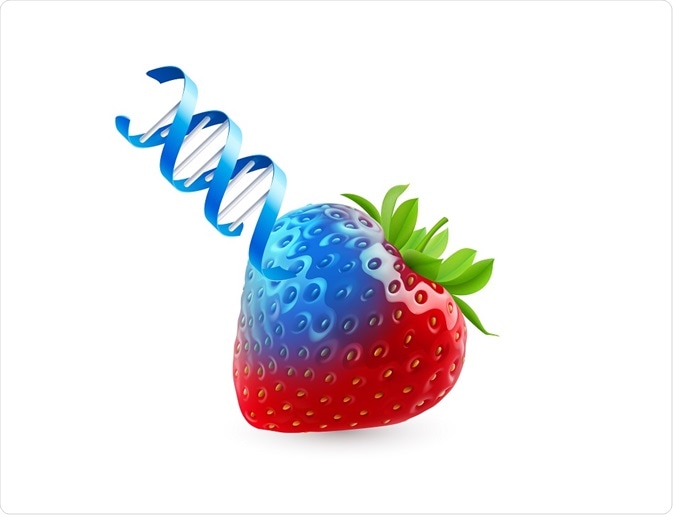Nutritional genomics is the study of nutrition and its relationship with the genome.
 Duda Vasilii | Shutterstock
Duda Vasilii | ShutterstockSince the completion of the human genome project in April 2003, research projects into the effects of diet on the genome have grown exponentially. Nutrition intake is both affected by, and affects, a person’s genes. The ability of the body to take in nutrition, use nutrition effectively, and burn energy in an optimal way can vary greatly between individuals. Conversely, the nutrition given to a body can affect the way the genes are expressed, leading to phenotype changes. Studying the DNA of an individual can therefore be used to generate a personalized dietary plan.
Nutritional genomics in medicine
Lactose intolerance is caused by the reduced function of a gene that codes for the enzyme lactase. This enzyme breaks down the disaccharide sugar lactose, present in milk and other dairy products. Thus, intolerant patients must stay away from dairy products.
A syndrome called Phenylketonuria is also managed through diet. PKA is caused by mutation in gene that codes for phenylalanine hydroxylase, an enzyme that breaks down amino acid phenylalanine. People suffering from this syndrome are prescribed a low protein diet, which helps to avoid serious long-term consequences, such as seizures.
Genes, nutrition and risk factors
Reducing disease risk
In certain individuals, diet can be a major risk factor for a number of diseases, such as type-2 diabetes or cardiovascular diseases. For example, methionine is an important amino acid in various metabolic processes in the body created by the activity of an enzyme on folate (vitamin B9). A mutation in the gene that creates this enzyme leads to less production of methionine, causing an increased risk of vascular disease. A diet high in folate can help to alleviate this risk.
Genes and food preferences
The foods that we enjoy, and don't enjoy, has also been linked to our genes. A preference for bitter or sweet foods is partially influenced by taste receptors T2Rs and T1R which can lead to overeating sweet, sugar-rich foods, while variation in ankyrin-B gene induces fat cells to store glucose at a much higher rate than normal.
The desire to consume food is governed by a variety of signals, such as blood sugar levels, the presence of certain nutrients, signals from the gastrointestinal tract, and many other sources of information. Genetic factors affecting these signals can lead to under or overeating.
Nutrition can alter genetics
Chemicals that are commonly present in the diet can alter the expression of some genes. Genes can be switched on or off by epigenetic processes, such as methylation or addition of a methyl group to DNA that can suppress DNA transcription. Methylation of DNA particularly takes place during the pre-natal period, but also continues throughout childhood and into adult life.
Low-calorie intake or overeating of high fat and low protein foods during pregnancy can lead to epigenetic events that make obesity more likely in infants. This may be an evolved response to times of hardship, where a child is programmed to store nutrition more effectively, although the exact mechanism is not yet fully understood.
Overfeeding of neonatal mice can provoke permanent changes in DNA methylation in the liver, while adults having a restricted diet (without malnutrition) experience fewer methylation events and exhibit age-related changes more slowly.
Further Reading
Last Updated: May 28, 2019